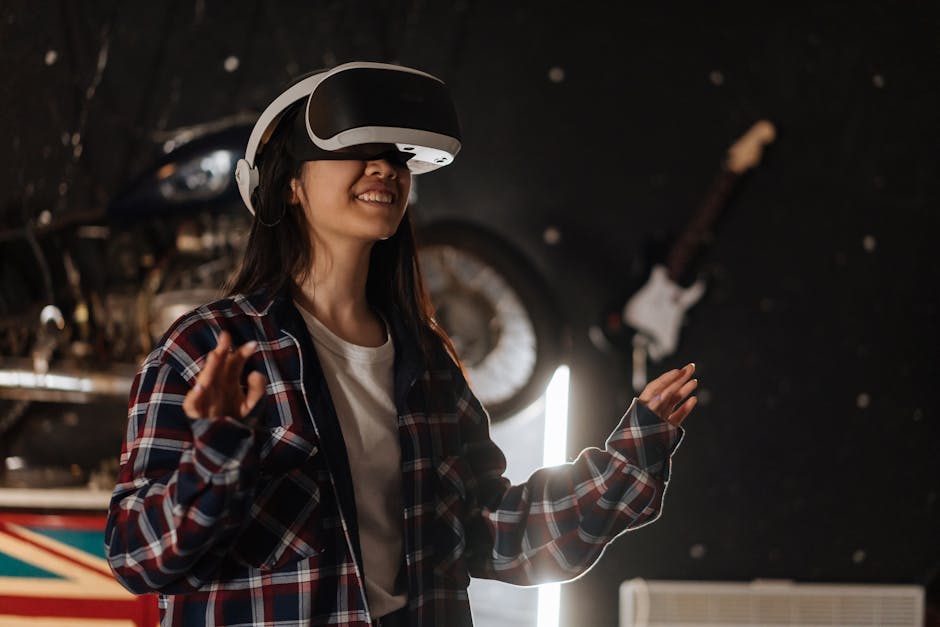Gaming News & Tutorials: The Rise of Game-Based Therapy for Mental Health
In the rapidly evolving landscape of mental health treatments, video games are making a powerful entrance, serving as innovative tools for therapy. The journey of video games has taken them from mere entertainment to dynamic platforms that support mental health. Studies and personal narratives reflect a burgeoning precedent—game-based therapy is leading to significant therapeutic breakthroughs. Join us as we explore how video games are reshaping mental health treatments and why this gaming therapy revolution is something worth celebrating.
The Intersection of Gaming and Mental Health

Historically, mental health treatments have primarily relied on traditional methodologies, such as talk therapy and medication. But as the world continues to embrace technology, therapy is undergoing a radical transformation. Researchers and mental health professionals are increasingly looking toward the world of video games, where interactive engagement can harness therapeutic potential. In fact, some experts now regard video games as a valuable addition to the therapeutic toolbox.
According to a 2023 study published by the American Psychological Association, 85% of participants who engaged in game-based therapy reported improved coping strategies and a notable reduction in anxiety and depression symptoms. Games designed specifically for therapy situations foster creativity, enable players to confront their fears in a controlled environment, and build resilience—all key components of mental well-being.
How Video Games Facilitate Self-Expression

One of the greatest challenges in traditional therapy is getting individuals to express their feelings and thoughts. Video games can bridge this gap, offering players a safe platform for self-expression. Using avatars, engaging narratives, and interactive environments, players can explore their emotions creatively.
Consider an example where a player navigates through a narrative-driven game that mimics real-life scenarios related to stress or social anxiety. Here, the player is not just a passive observer but active in problem-solving, leading to personal insight and therapeutic dialogue. This concept is further elaborated in another relevant study on gamification in therapy, which highlights the mechanics that encourage self-reflection and personal growth.
The Role of Virtual Reality in Therapy

Virtual reality (VR) has taken the idea of game-based therapy to unprecedented heights by creating immersive worlds for users. Imagine stepping into a VR environment that mirrors a crowded space if you struggle with social anxiety. In a controlled and safe manner, players can practice social interactions and exposure therapy without real-world repercussions.
For instance, the Virtual Reality Exposure Therapy (VRET) program successfully allowed patients facing post-traumatic stress disorder (PTSD) to confront and process traumatic scenarios. This method has shown promising results, and ongoing advancements in VR technology continue to enhance these therapeutic experiences. Furthermore, you can explore this intersection's details in our popular piece on procedural generation in gaming, which also touches on the therapeutic potentials of creating customizable worlds.
Game Mechanics: The Building Blocks of Healing

Gamification has become synonymous with learning and motivation, but its principles are now being applied to the realm of mental health. Game mechanics can transform therapeutic exercises into engaging challenges. These mechanics encourage players to seek rewards, complete tasks, and progress through levels, often without the awareness that they are participating in therapeutic exercises.
Reward Systems and Motivation

The core of gamification lies in its ability to motivate. Players receive immediate feedback through points, achievements, or meaningful experiences, which can translate to a more engaged therapeutic journey. These reward systems can be particularly effective for those struggling with motivation, especially in traditional therapy settings.
Moreover, therapeutic games often integrate elements like journaling, self-assessment, and goal-setting within the gameplay. This holistic approach grounds players in a framework of self-discovery and cultivation that runs parallel to traditional therapeutic methods, encouraging consistent, healthy mental health practices.
Evidence-Based Outcomes: What the Research Shows

Evidence supporting the efficacy of game-based therapy is expanding. Notably, a comprehensive review by researchers at UCLA found that participants who engaged with therapeutic games exhibited improved emotional regulation, higher resilience to stress, and enhanced empathy.
Critically acclaimed titles such as "Celeste" and "Hellblade: Senua's Sacrifice" have sparked discussions on mental health within gaming communities, highlighting anxiety, depression, and trauma. These games don’t merely portray these issues; they invite players into the experience, offering valuable lessons and insights along the way.
The Inclusion of NPCs in Emotional Support

Another fascinating trend is the use of non-player characters (NPCs) to address mental health issues. NPCs can be designed to interact meaningfully, offering emotional support or guidance in-game. These digital companions can help players articulate their feelings and dilemma, providing a unique avenue for exploring their problems without the need for human judgment. This application ties into a broader conversation discussed in our article, where we look at the uplifting potential of NPCs in gaming.
Therapeutic Game Design: An Emerging Career Field

Gaming therapy has spurred a surge of interest in therapeutic game design. Many organizations are now seeking specialists who can integrate mental health principles into game development. Developers with a background in psychology and mental health are becoming instrumental in creating interactive experiences that support therapy.
As the demand for these games continues to rise, educational programs are emerging to train new professionals who can bridge the gap between gaming and psychological well-being. The need for stakeholder collaboration—to ensure these games are designed ethically and effectively—becomes increasingly critical as we delve deeper into the world of therapeutic gaming.
Challenges and Considerations
Despite the promising trajectory of game-based therapy, it is essential to recognize the associated challenges. Not all games are suitable for therapeutic use; designers must ensure their content is sensitive to players' emotional states and triggers. Additionally, the gap between the gaming industry and mental health professionals must be bridged more effectively to foster a collaborative approach towards creating positive gaming experiences.
There is also a growing concern about gaming addiction. While games have the power to heal, they can also become detrimental if misused. Striking a balance is crucial—a line that must be carefully navigated by tech developers and mental health experts alike.
Future Directions: The Path Ahead

As we look to the future of mental health and gaming, the synergy between these fields will undoubtedly continue to grow. New technology, such as AI-driven storytelling and personalized avatar creation, offers exciting prospects for tailored therapeutic experiences.
The importance of community support cannot be overstated either. Multiplayer games can foster social connections, allowing individuals to engage with their peers and find common ground on mental health topics. This emerging community-based approach can be transformative, providing layers of support beyond the individual level.
The Cultural Shift in Mental Health Awareness

The cultural shift in awareness around mental health is equally accountable for the rise of game-based therapy. The destigmatization of seeking help, coupled with the normalization of discussing mental health within gaming narratives, empowers individuals to consider these innovative treatment options.
As discussions around mental wellness evolve, we find more gamers advocating for the integration of therapy-focused content in games, leading to further development in this niche space.
Final Thoughts: Embracing the Future of Game-Based Therapy
Game-based therapy is more than a fad; it represents a groundbreaking evolution in how we approach mental health treatment. By leveraging the interactive power of video games, individuals can explore their emotions, confront their challenges, and work towards healing in a safe, engaging environment.
As technology continues to innovate and understanding of mental health grows deeper, the gaming industry stands at the forefront of creating a positive, impactful outreach. Whether you’re a gamer, a mental health professional, or simply curious about this growing trend, the future of game-based therapy opens up vast possibilities. Engage with the narratives, challenge yourself with new perspectives, and don’t hesitate to explore the interconnected worlds of gaming and mental health.
Curious about more ways gaming can positively impact our lives? Check out articles on the psychology of color in game design or see how sound design can shape gaming experiences for further insights.



